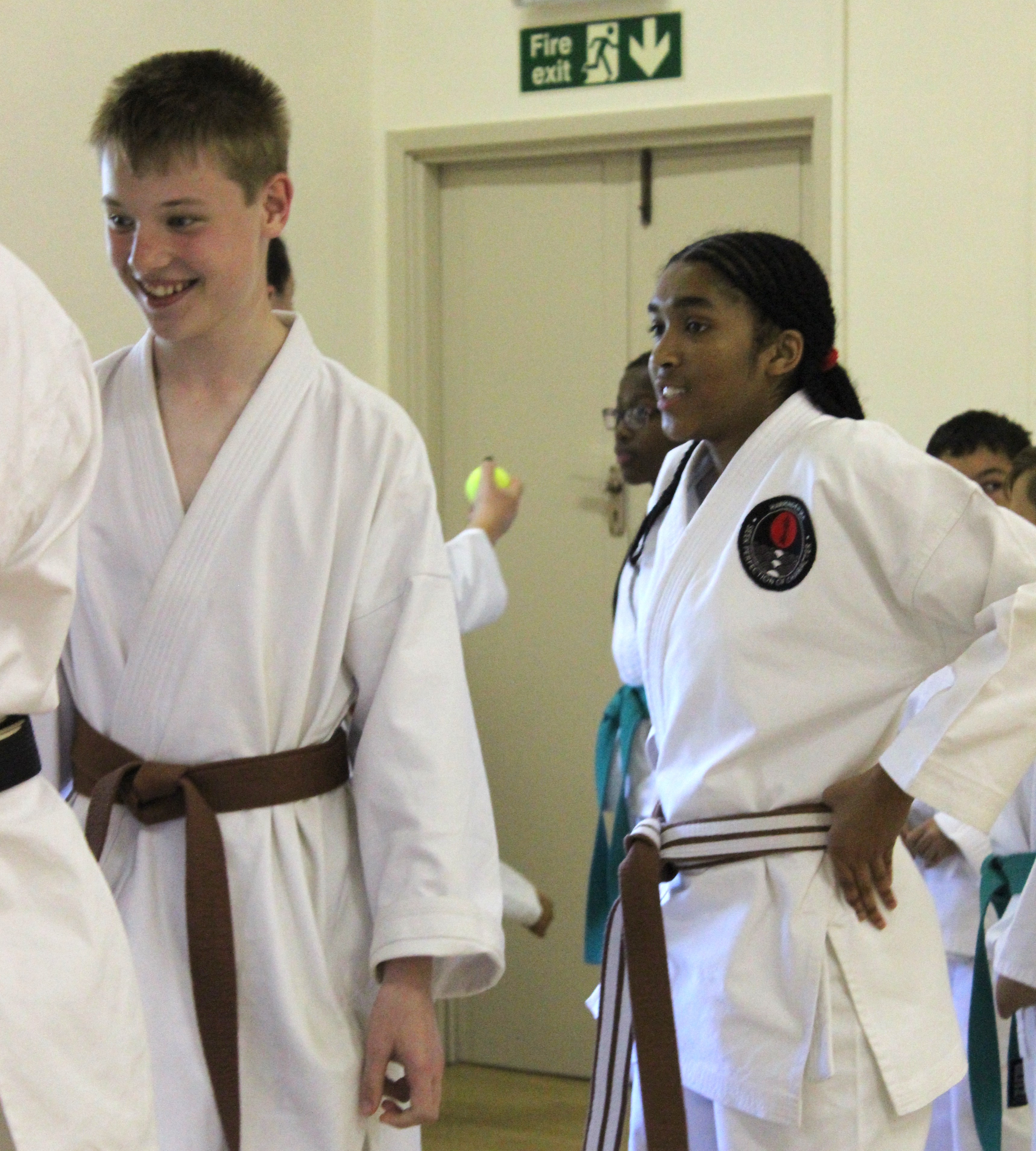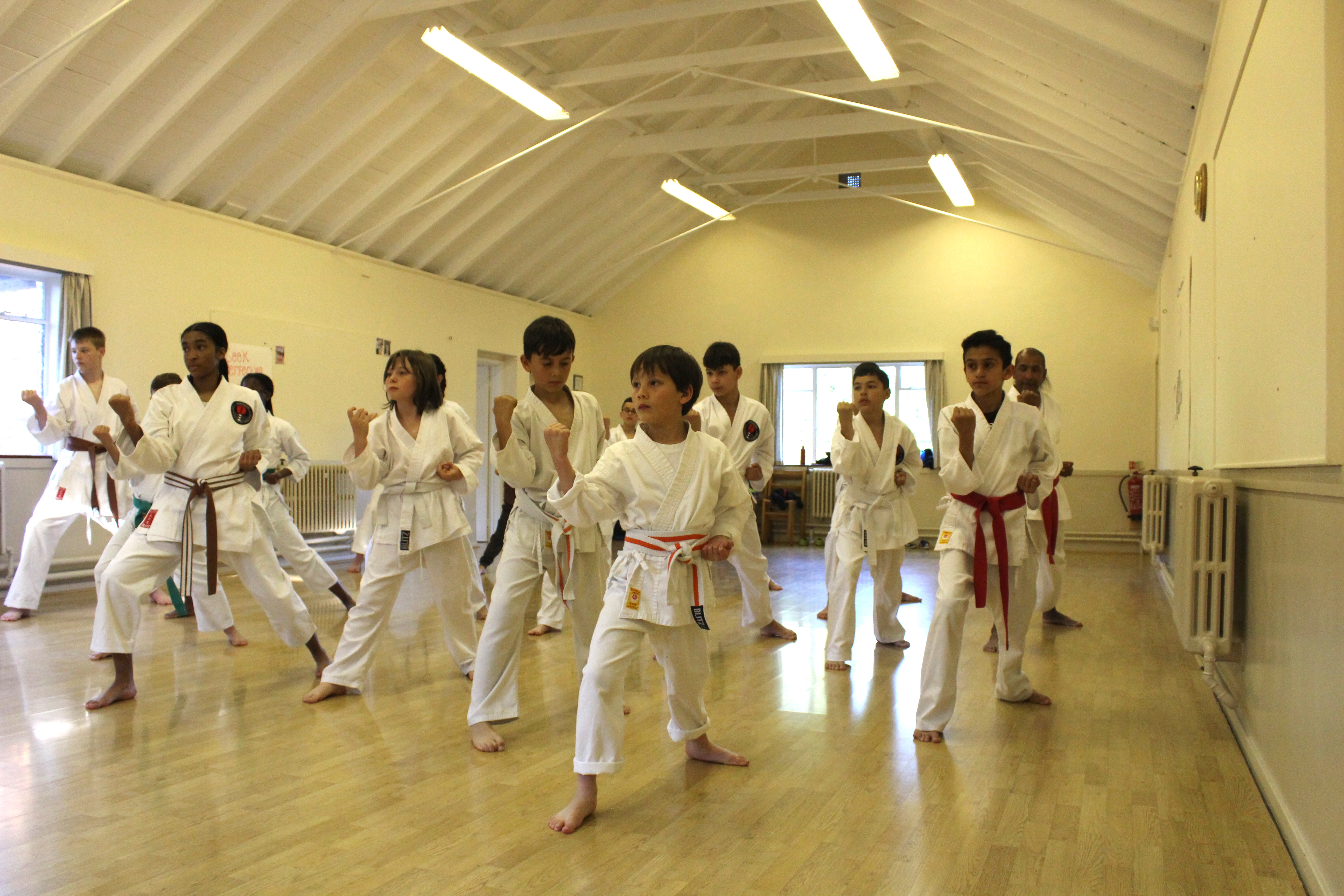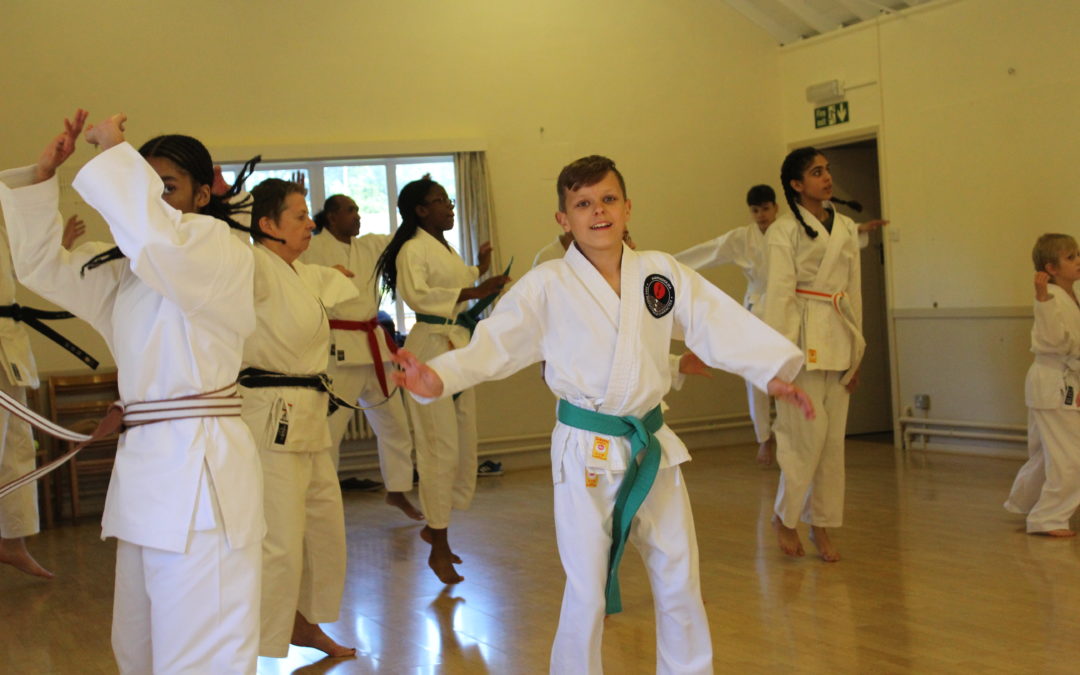Did you know there are strong, positive links between karate and mental health? Apart from the obvious self-defence and physical health benefits, karate training is extremely good for both your brain and your mind.
As a fitness enthusiast (understatement of the year!), I know that exercise helps me cope with the stresses of life. But it’s karate that works best for me. I started training as a child and, except for a short break, it’s been a big part of my life ever since. Karate is a confidence-booster, a stress-manager – and an awesome mental work out.
Karate boosts confidence and self-esteem
In my experience, confidence and self-esteem are key aspects linking karate and mental health:
Defending yourself
Be in no doubt that karate is an extremely reliable form of self defence. As your techniques improve and strengthen, so your confidence grows. You build a firm foundation physically which is hugely reassuring mentally.
Karate teaches you how to protect yourself in a number of different – but entirely possible situations. You’re more aware, better prepared and able to spot potential danger. You also learn how to avoid a fight.


Feeling good about yourself
You get ‘lightning bolts’ in the dojo – those fabulous moments when you suddenly get the hang of a technique. After weeks of practise, practise, practise things start to fall into place. And there’s nothing quite like it for making you feel so proud of yourself – rightly so.
Kicks, for example, are difficult for most students to figure out. But when your hard work pays off, well…
Time and time again, I witness this really exciting sense of achievement. It’s simply karate and mental health working together. Both children and adults doing wonders for their self-esteem, walking taller each time they enter the dojo. Karate is doing something for yourself. Something you maybe thought was beyond your reach.
Manage your stress levels
Everyone needs relief from the stresses of life and this is is where karate and mental health really do work together. Karate ‘takes you out of yourself’. You’re concentrating upon speed, timing, technique. It’s hugely satisfying getting body and brain to work as one. Sometimes you astound yourself. Coming up with a 3-4 technique combination, refining it with a partner – then maybe, just maybe winning a medal in one of many competitions we enter.
We karate students don’t need studies about antioxidants and endorphins to tell us how we feel after training. Whether it’s a technical or cardio-blast session, we’re physically tired but mentally refreshed. 1-2 hours or thinking about something else – something we’re more in charge of and getting good at.
Karate – your mental work out
People who carry on learning after childhood improve their well-being and have a greater chance of coping with stress. Learning that involves other people increases this well-being because it builds and strengthens your ability to interact and socialise properly. Sounds to me like karate and mental health are working as a team again!
- There are 26 katas – the shortest has 20 moves, the longest 67. Some are deceptively easy, some will be favourites, others won’t
- Kumite is all about spotting your opponent’s weaknesses then devising tactics to exploit them so you win the points
- Some people have lightening attacks and you have nano seconds to choose the most effective and satisfying block
- Our bodies will let us do so much more if only we bothered to learn how
So now you know: karate gives our brains something new to think about.
Karate is a sociable support
A I pointed out earlier, mental health studies indicate that the socialising aspect of sport is really important. And for sure, we karate people do fun stuff away from the dojo. From park runs and mad mud events to silly bouncy castle moments and meals out together.
Like many people, I’ve made life-long friendships through karate. Others have managed to find their soul mates in the dojo. Being part of an international Shotokan organisation such as JKA means you get to meet people from other clubs too.
But what happens in the dojo is just as supportive and reassuring. Your own karate journey is massively influenced by the individual attention and guidance you get from your instructor. Then you can always rely on the morale-boosting and teasing, (sorry, encouragement) you get from your fellow students.
If you decide to compete at club or international level, you become part of an even tighter team of people working together to achieve success on the mat.
Karate and mental health – a winning team
I benefit massively from karate – both as an instructor and a student. When I read that one in five young people feel that life’s not worth living, it really makes me determined to raise the profile of karate as an important part of your support network.

